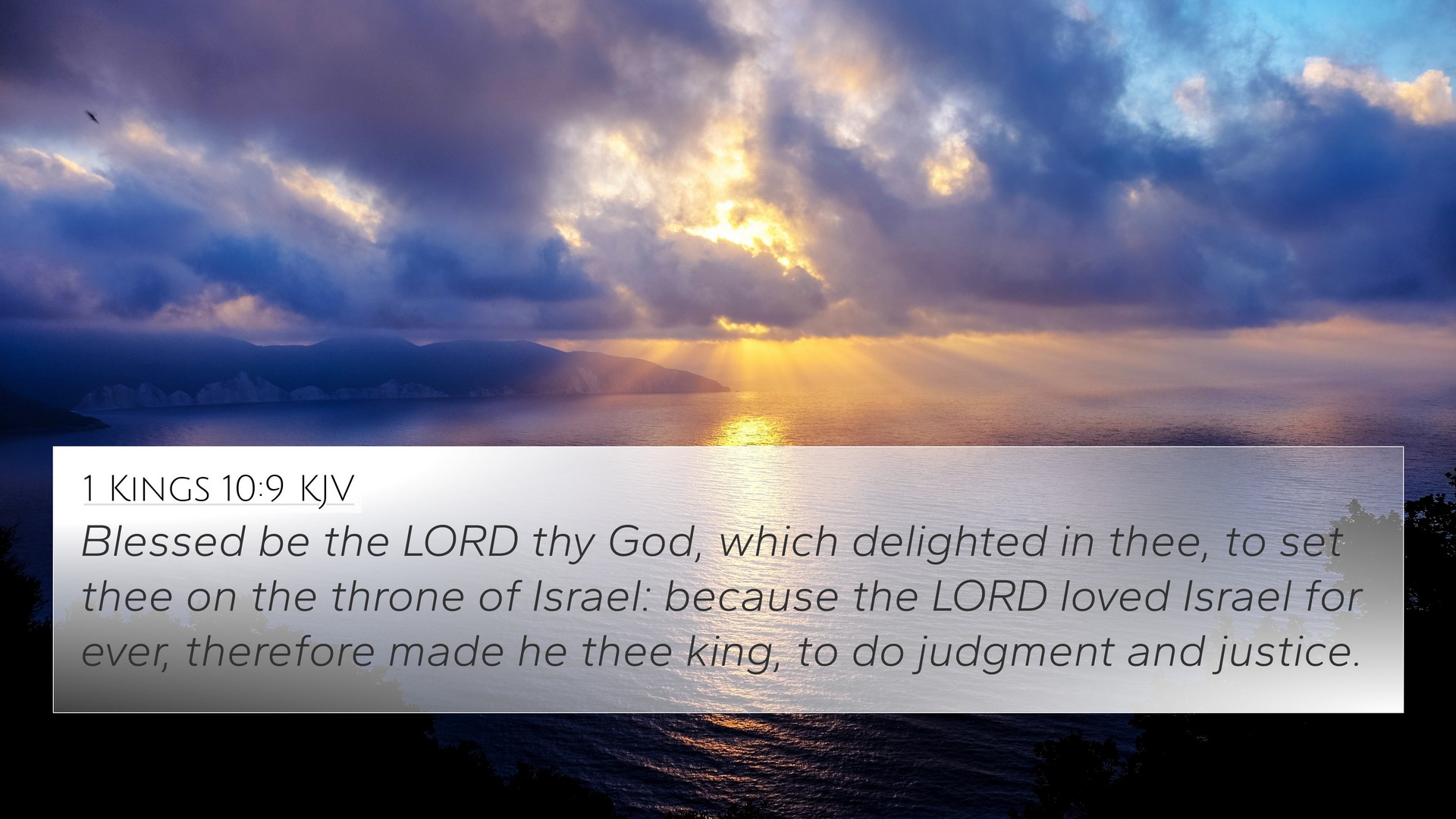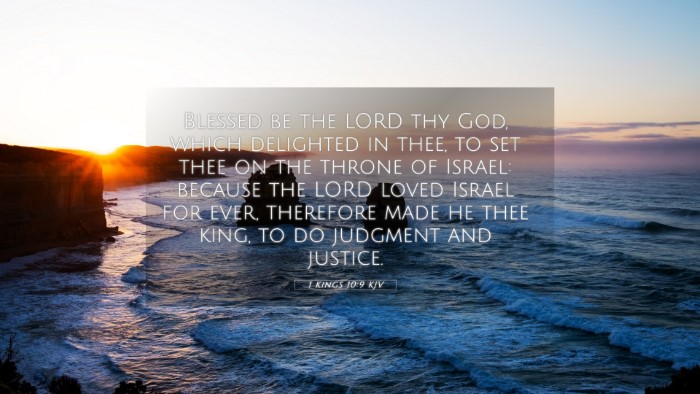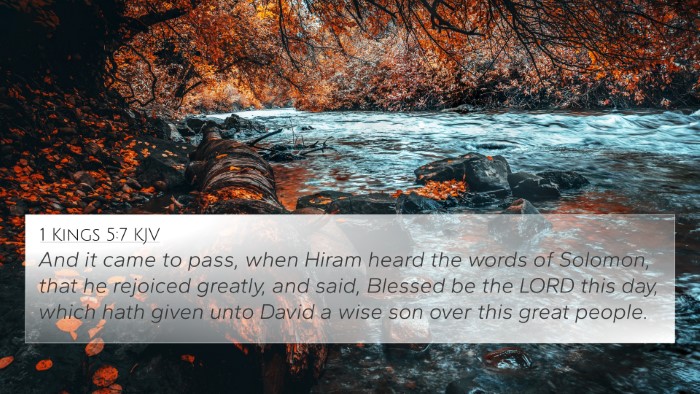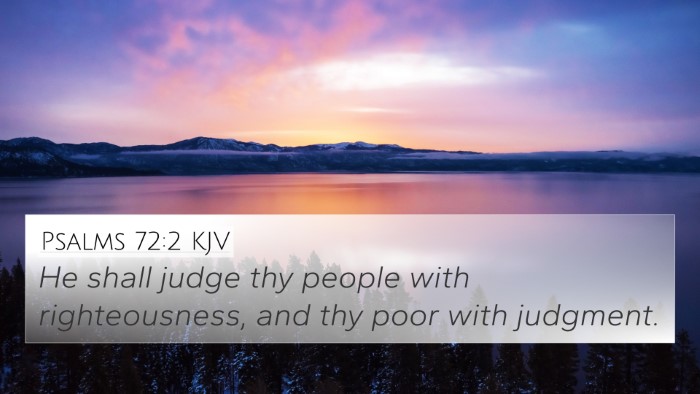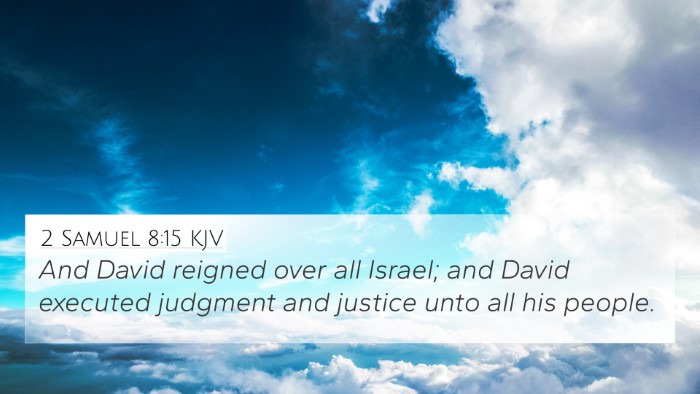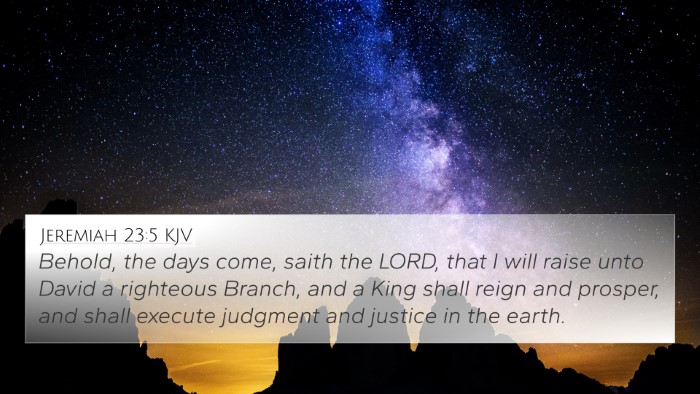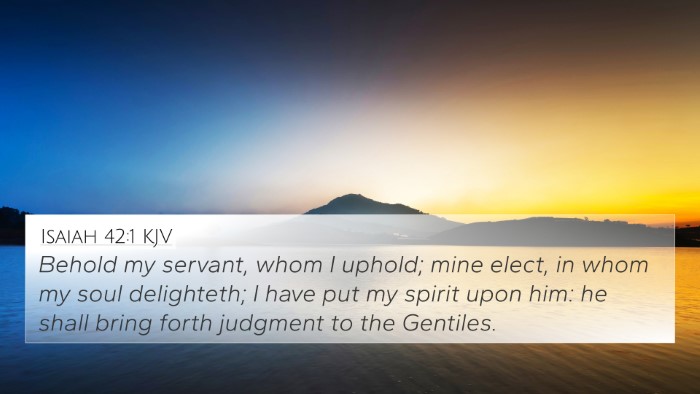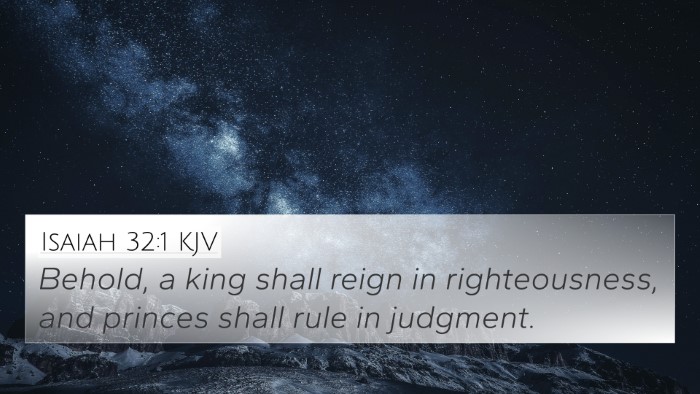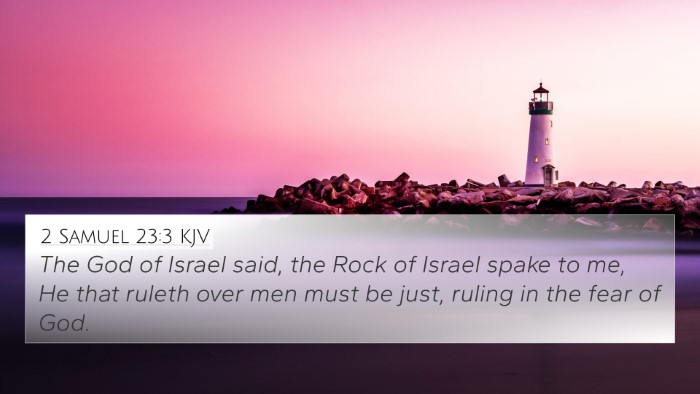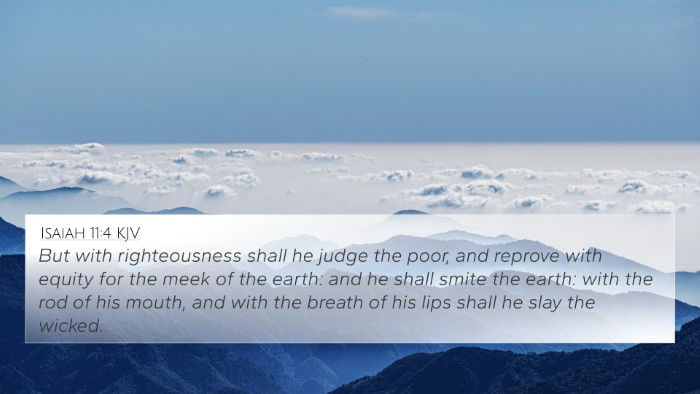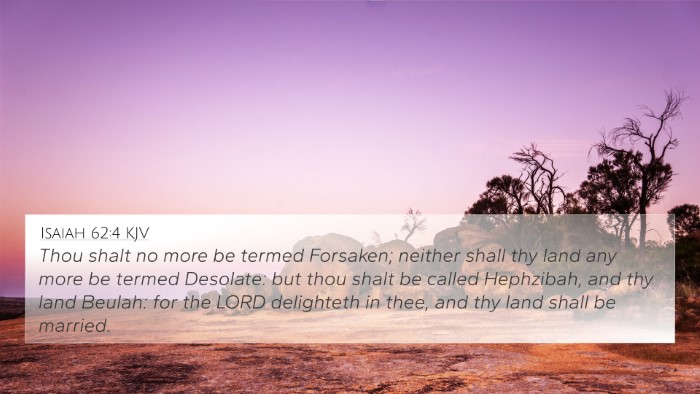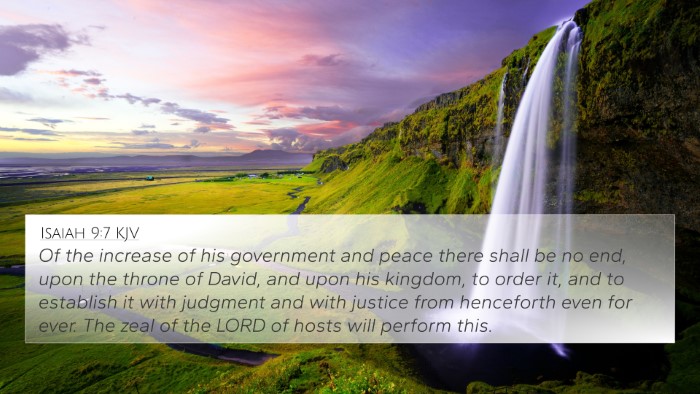Understanding 1 Kings 10:9
Verse: “Blessed be the LORD thy God, which delighted in thee, to set thee on the throne of Israel: because the LORD loved Israel for ever, therefore made he thee king, to do judgment and justice.” (1 Kings 10:9)
This verse is part of a larger narrative about the reign of Solomon and the admiration he inspired in others due to his wisdom and the prosperity of his kingdom. The verse underscores the favor and blessing that God bestowed upon Solomon, as well as the divine purpose behind Solomon’s kingship.
Commentary Insights
- Matthew Henry: Henry emphasizes that the visit of the Queen of Sheba was a recognition of Solomon's great wisdom, which was a gift from God. He highlights that the blessings of Solomon not only reflected God’s favor but also served God’s glory. This relationship implies a divine providence in leadership roles.
- Albert Barnes: Barnes points out that the reign of Solomon was a fulfillment of God’s covenant promises to Israel. He notes that Solomon’s wisdom and capacity for judgment came from God’s grace, making it imperative for Solomon to govern justly and righteously to reflect God's nature.
- Adam Clarke: Clarke elaborates on the significance of the phrase "blessed be the LORD," indicating that true wisdom and power comes from recognizing God's sovereignty. Clarke also connects this verse to the themes of justice and governance, suggesting that a ruler’s primary duty is to uphold moral and ethical standards as prescribed by God.
Thematic Connections
The verse encapsulates several crucial biblical themes such as divine election, wisdom, justice, and governance. By analyzing these themes, we can see how they resonate throughout scripture.
Bible Verse Cross-References
This verse can be linked to several other scriptures that share similar themes or shed light on Solomon’s role and responsibilities:
- Deuteronomy 17:14-20: Guidelines for the king's responsibilities and moral obligations.
- 2 Samuel 7:12-16: God’s covenant with David regarding his throne.
- 1 Chronicles 29:23: Solomon’s accession to the throne and acknowledgment of God's sovereignty.
- Proverbs 8:15-16: Wisdom as a source of kings' reigns; God's sovereignty over rulers.
- Ecclesiastes 3:17: The idea of judgment and God's appointed times for justice.
- Psalm 72:1-2: A prayer for a king to rule with righteousness and justice.
- Romans 13:1: The principle that all authority comes from God.
- Matthew 12:42: Jesus references the wisdom of Solomon in His teachings.
- James 1:5: The invitation to ask God for wisdom.
- Luke 1:32-33: Prophecy about Jesus as a king who will reign forever.
Connecting Themes in Scripture
The themes present in 1 Kings 10:9 resonate throughout the Bible. The connections between biblical texts underscore the importance of understanding scripture as interwoven rather than isolated. For instance:
- In the Old Testament, kingship is often tied to moral integrity and devotion to God, as shown in 2 Samuel 7:12-16, emphasizing God’s covenant with David.
- In Proverbs, wisdom is frequently highlighted as an attribute that leads to righteous governance - a trait Solomon possessed abundantly.
- New Testament writings, like Romans 13:1, reinforce the idea of God's ultimate authority over rulers and the importance of just leadership.
Inter-Biblical Dialogue and Reflection
When reflecting on the authority and responsibilities described in 1 Kings 10:9, we see an ongoing dialogue throughout the Bible which weighs the role of leaders as stewards of divine wisdom. This necessitates:
- Recognizing the source of wisdom and power as divinely ordained.
- Understanding justice and moral governance as an extension of a ruler's relationship with God.
- Learning from the past rulings of leaders like Solomon, encouraging modern leaders to seek wisdom from God for effective governance.
Conclusion
In summary, 1 Kings 10:9 offers a profound insight into the nature of God's blessings upon leaders, the importance of wisdom, and the call to justice within governance. By employing tools for Bible cross-referencing, we enhance our understanding of how various scriptures discuss leadership, wisdom, and divine purpose. This comprehensive analysis enables deeper engagement with the biblical text and fosters a richer theological understanding.
Further Study and Resources
For those wishing to explore the connections further, utilizing a bible concordance or a dedicated bible cross-reference guide can provide invaluable insights into linking Bible scriptures that discuss similar themes.
